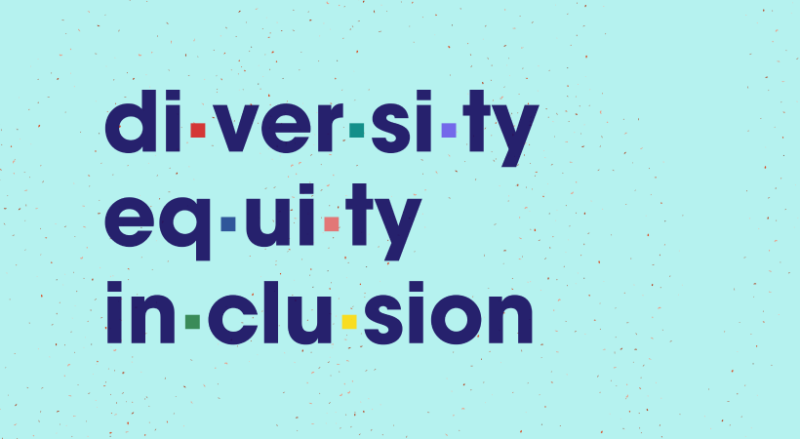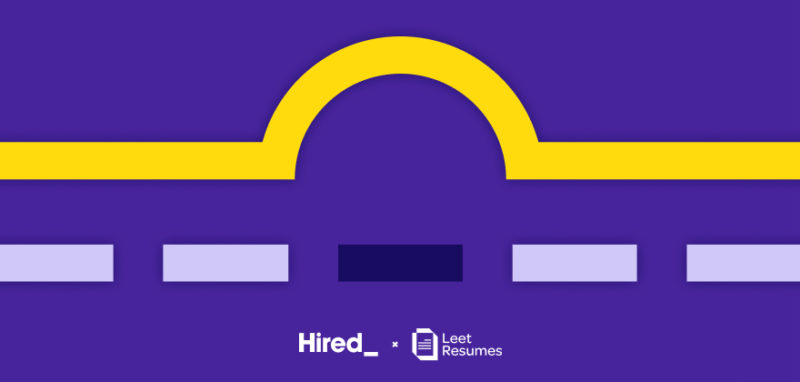
Should You Disclose a Disability During Your Job Search? The Complete Guide
Searching for a new job can be a stressful, anxiety-inducing process for anyone. If you’re one of the 61 million U.S. adults (26% of the population) who lives with a disability, a job search can be even more complex and worrisome.
Are you legally required to share information about your disability in the first place? Can employers opt to pass over your candidacy due to a disability? When is the best time to disclose your disability during the application and interview process? How specific do you have to get?
These are just some of the many questions that might be passing through your mind as you think about applying for your next job.
Luckily, being prepared is half the battle. By researching what to expect during the process, you can take some of the pressure out of applying for a job with a disability.
What types of disability forms will I come across during my job search?The most common disability form you’ll encounter during your job search is the Voluntary Self-Identification of Disability form issued by the Office of Management and Budget.
A disability form is a government-required step in the application process for a company in order to provide equal employment opportunities for those with disabilities. In the United States, the U.S. Equal Employment Opportunity Commission enforces Federal laws prohibiting employment discrimination. An equal opportunity employer is one that pledges to not discriminate against employees based on race, color, religion, sex, national origin, age, disability or genetic information. Therefore, companies ask — but do not require — applicants to fill out this form.
In a nutshell, this form explains the reasoning behind requesting the information, tells you which conditions qualify as disabilities, and gives you three options for answers:
- Yes, I have a disability or have a history/record of having a disability
- No, I don’t have a disability or a history/record of having a disability
- I don’t wish to answer
This question is often top of mind for folks. When the Americans with Disabilities Act (ADA) was signed into law in 1990, it became illegal for employers to discriminate against hiring qualified individuals due to mental or physical disability.
On top of that, the ADA also requires employers to make “reasonable accommodations” to ensure that qualified individuals with disabilitiesf can perform effectively at work (e.g., putting in a wheelchair ramp to access an office building).
Unfortunately, despite the progress since 1990, discrimination is still common and not all cases get solved. In 2021 alone, 22,843 disability claims were filed nationally, making it the most commonly reported type of discrimination in the workforce.
Refocusing on the positives, know that you are in control of what to share. You are not legally required to disclose your disability status to a potential employer.
It’s also worth noting that you might not be required to get into the specifics of your condition — which might give candidates who don’t want to be associated with the stigma of their disability peace of mind. While the Equal Employment Opportunity Commission (EEOC) hasn’t issued formal guidance on whether employers can ask for the precise diagnosis, some states, including California and Connecticut, do not allow companies to ask for detailed information about your medical history.
Despite the legal protections that exist (more on this in a bit), it’s perfectly understandable why someone with a disability might hesitate to disclose that information. All other factors the same, might an employer opt to hire a candidate without a disability over one with a disability? It’s a very valid concern.
Before we take a look at some of the scenarios where it makes sense to disclose your condition, let’s take a step back and examine your legal rights as a jobseeker with a disability.
Legal protection for jobseekers with disabilitiesIf you’re qualifed for the essential functions of the job you’re applying for and you have a disability, the ADA protects you from getting passed over due to discrimination. “Qualification” includes having the requisite education, experience, and skill set needed to excel in the position — and the ability to perform the job responsibilities, with or without accommodation.
This means that employers cannot discriminate against you during the recruiting, hiring, and training processes, and they also can’t discriminate against you when it comes to promotions, benefits, pay, and job assignments. During the interview process, employers are also not allowed to ask you questions about your medical history or health, whether you’ve filed workers’ comp claims, or whether you have disabilities. They can, however, ask questions about whether you are able to perform job responsibilities with reasonable accommodation.
While this protection creates an ideal scenario, discirimination can be difficult to prove in many cases. In the event you feel as though you’re being discriminated against, you need to file a claim with the EEOC within 180 days of said event taking place. Read more on how to file a complaint.
When is the best time to disclose a disability while job hunting?When it comes to disclosing your disability to a prospective employer, there’s no such thing as the perfect time. Some people have found being up front about it from the get-go has worked well, while others say early disclosure isn’t the best move for everyone.
When it boils down to it, timing your disclosure is up to you. Generally speaking, if you’re going to disclose your disability, you’ll have three options:
- Before the interview – this could be ideal for candidates who have visible disabilities so the interview can focus entirely on qualifications and experience
- During the interview – mentioning your disability during an interview can demonstrate your confidence to prospective employers and reassure them that your condition does not impact your performance and ability to meet the responsibilities of the role
- After the interview – if you’ve got a job offer and haven’t disclosed your disability, now could be the best time, particularly if you’ll need accommodations
Keep in mind that, while the ADA prevents employers from asking questions about disabilities during the interview process, they are allowed to ask after they’ve extended a job offer — as long as they ask the same questions to other candidates offered similar positions. If you decide to disclose information about a disability after an offer, know the employer cannot revoke it unless you cannot perform the primary job tasks or present a risk to yourself or others.
Before you decide your strategy, spend some time researching the company to determine whether they have any public stance on hiring individuals with disabilities. In the age of diversity, equity, and inclusion initiatives, many organizations are proactively searching for underrepresented individuals and putting effort and resources forward to foster a sense of belonging for all. In this light, revealing your disability could result in floodgates of support opening up. Not to mention, being your true, authentic self will really allow you to thrive in the workplace.
If you’re still feeling unsure, we highly recommend clicking into the pages linked in this piece, as they go into extensive detail about various scenarios and may provide more specific information for your condition.
Tips for discussing a disability during the job interviewCatarina Rivera, disabled public speaker, offers guidance based on her experience with Usher syndrome.
Do not leave employers wondering whether you can perform the role. Explain to them how you will perform the tasks and functions essential to the position. Be confident and share your adaptations. This showcases your strengths and highlights exactly what you will bring to the table.
It is important, though, to avoid over explaining your diagnosis or disability. For example, if you have Usher syndrome. Instead of going into detail about what it is, you could say, “I wear hearing aids and have a limited field of vision due to a vision disability.” Don’t feel pressure to overshare or provide more information than necessary. You can keep it simple.
You have the right to request accommodations without stating your disability. For instance, as a person who is hard of hearing, you might say, “I benefit from closed captions. Can you please provide them during this virtual interview?” You can ask for what you need without elaborating or specifically having to say why. If the employer is truly inclusive, they will put in the effort.
If you’re feeling down on your luck, remember that you are not alone. There are numerous organizations that support people with disabilities in seeking meaningful work. Check out the resources below as you look for additional support and information.
Diversability, an organization promoting disability prideDiversability is an award-winning ecosystem of over 70K (across all digital platforms) on a mission to elevate disability pride through disability community, visibility, and engaged allyship. The organization works to break the cycle of social isolation and exclusion for disabled people, improving their overall wellbeing. Through the connections within the community and the work of the organization, Diversability aims to achieve representation and economic self-sufficiency for disabled people.
Hired works with Diversability to provide community members a resource to find employment within the tech and sales space. This partnership aligns in the vision to create a world where all hiring is equitable, efficient, and transparent. Diversability encourages people with and without disabilities to check out their resources and community to connect with others, find support, or become an ally.
Hired also partners with Diversability to educate the working world on disability representation and support in the workplace. If you’re an employer looking to make sure your organization creates a safe and accessible workplace for disabled employees, check out this article from Diversability: “Top 10 Disability Workplace Accommodations: How Does Your Company Measure Up?”
Other resources for disclosing a disability during a job search- Tech Disability Project, an organization dedicated to helping people with disabilities in the tech industry
- Lime Connect, a network of high-potential students and professionals with disabilities
- Disabled Techies Slack Community, a network of disabled professionals in the tech industry
- A to Z of Disabilities and Accommodations, a glossary of disabilities, work functions, and accommodations
- Job Accommodation Network Contact, information services for expert guidance on job accommodations and disability employment issues
- Schedule A Tips, an article on tips for applicants with disabilities on getting federal jobs
Here’s to landing your dream job however you ultimately decide to navigate the process. Don’t forget to check out other listings on the Hired blog to assist with getting your job ready.
Hired is the most efficient way to find a tech or a sales role you love today. With unbiased insights, DEI tools, skill assessments, and dedicated Candidate Experience Managers, Hired works with over 10,000 companies around the world to connect thousands of active and qualified candidates to employ their full potential. After registering, platform job seekers match with top employers thanks to better data, preference curation, and compensation transparency. Backed by The Adecco Group, Hired is rated by G2 as a leader in Recruiting Automation, Job Search Sites, and Diversity Recruiting.
Catarina Rivera, MSEd, MPH, CPACC, a disabled public speaker, DEI consultant, and content creator contributed to this article.
Are you ready to find your next role? Learn how the Hired platform works for candidates.Related blog posts

What is DEI? How Does it Improve the Sales & Tech Job Search Process?
A survey of tech and sales talent revealed there’s some confusion around the acronym DEI,...

Ready to Find Your Dream Job? Start with Knowing What You Want
Searching for a new job, let alone a ‘dream job,’ may feel daunting, especially if you...

How to Negotiate Your Job Offer
So, you received an offer — congratulations! Now, you might be wondering, Can I negotiate it? Yes,...

Want More Interviews and Better Matches? 8 Key Tips!
Pro tips to get more interview requests Are you getting matches with your Hired profile, but...

Build Confidence and Take Control of Your Tech Job Search Series
The process of finding a job often feels overwhelming. It’s difficult to determine the best avenue...

How to Handle an Employment Gap on Your Resume (Flip the Script!)
You’re not your work history Addressing an employment gap on a resume is one of the most...
